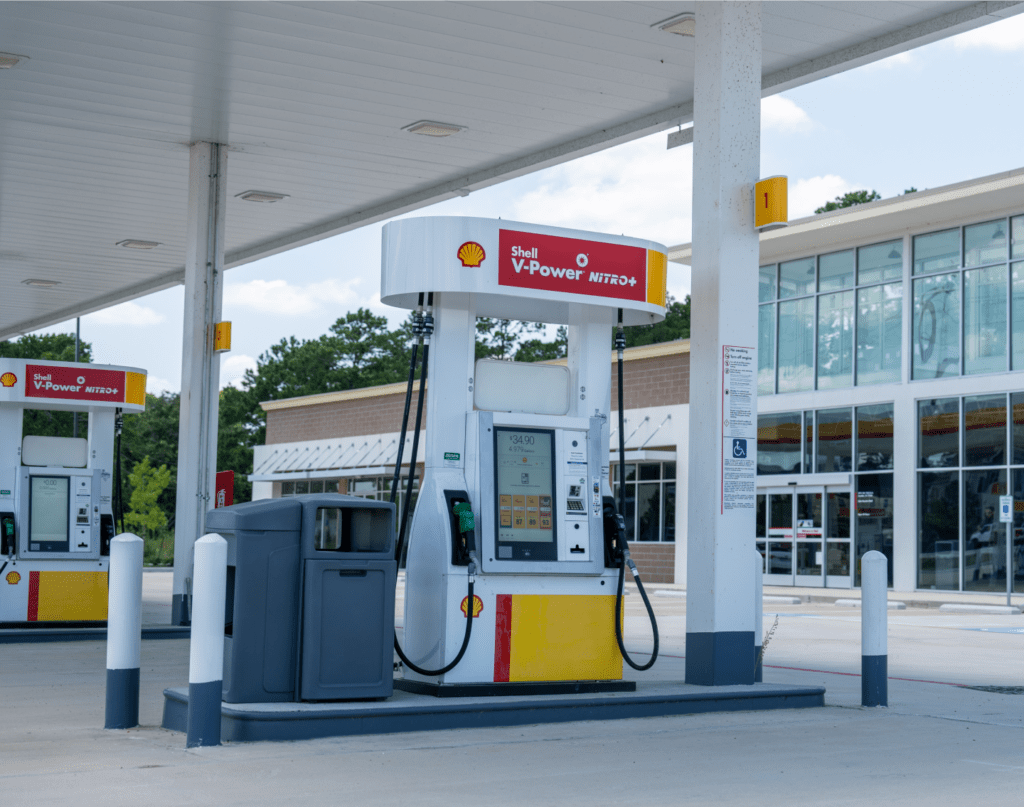
Bulk fuel distribution serves as the backbone of the global energy supply chain, getting a steady and reliable flow of fuel products to power industries, transportation, and utilities.
It is a highly regulated process that involves the transportation of large volumes of fuel via specialized carriers to meet the demands of a rapidly evolving energy sector.
WHAT IS BULK FUEL TRANSPORTATION?

Bulk fuel transportation refers to the systematic movement of large quantities of fuel. This process is executed using a variety of vessels, vehicles, and pipelines designed to handle the specific requirements of different fuel types.
The main goal of bulk fuel transportation is to deliver these commodities efficiently, safely, and in a manner that preserves their quality from point of origin to destination.
WHAT TYPES OF FUELS ARE TYPICALLY DISTRIBUTED IN BULK?
Distributing fuel in bulk is critical for meeting the energy needs of a wide range of sectors. This distribution supports everything from transportation to manufacturing and energy generation.
Liquid Fuels
- Gasoline: Gasoline is one of the most commonly distributed liquid fuels, vital for powering automobiles, generators, and various types of machinery. Bulk transportation of gasoline is usually done via tank trucks, trains, and sometimes through pipelines.
- Diesel: Diesel is another prominent liquid fuel transported in bulk, central to the operation of heavy machinery, trucks, buses, and ships. Its higher energy density makes it a preferred choice for long-haul transportation and industrial applications.
- Jet Fuel: Jet fuel, a type of aviation fuel, is specifically formulated for use in aircraft. Its bulk distribution is important for the aviation industry, and it has stringent requirements for quality and handling.
Gaseous Fuels
Gaseous fuels require different handling and transportation methods due to their physical state and the potential hazards they present.
- Natural Gas: Natural Gas is primarily transported through pipelines as it is the most efficient and cost-effective method. In areas where pipelines are not available, compressed natural gas (CNG) or liquefied natural gas (LNG) are transported via special tanker trucks and ships.
- Propane: Propane, commonly used for heating and cooking, is transported in bulk as a liquid under pressure. It can be delivered by tank trucks to refill large storage containers at homes or businesses.
HOW DOES BULK FUEL DISTRIBUTION WORK?

Bulk fuel distribution, a vital component of wholesale fuel distribution, is a complex network that bridges fuel availability from suppliers to consumer applications. It begins with extraction processes like drilling or fracking to obtain raw energy materials.
These materials are then refined into usable fuels, setting the stage for fuel distribution to take place. Transporting these fuels to various destinations globally requires careful planning and logistics, involving a series of exchanges between suppliers, distributors, retailers, and end-users, making it one of the most dynamic fuel distribution companies.
WHO ARE THE KEY STAKEHOLDERS INVOLVED IN BULK FUEL DISTRIBUTION?
The bulk fuel distribution model involves numerous stakeholders, each playing a critical role in achieving efficient and successful operations.
Fuel suppliers are the cornerstone, often large oil companies, making them the initial link in the chain of bulk fuel suppliers. On the other hand, distributors and transporters are pivotal in securing the fuel distribution network’s resilience and efficiency, managing the complex logistics from refinery exits to the marketplace.
Lastly, the retailers and end-users—the gasoline stations to households—represent the demand side of the bulk fuel distribution chain, reliant on consistent service from reputable fuel distribution companies.
Fuel Suppliers
Fuel suppliers are the starting point in the bulk fuel distribution chain. These are typically large oil companies that extract and refine petroleum products.
They’re responsible for producing gasoline, diesel, jet fuel, and other energy products that will eventually be distributed to consumers.
Distributors and Transporters
Distributors and transporters are the intermediaries in the bulk fuel distribution process. They manage the bulk transportation of fuels from refineries to storage terminals and from storage to various retail outlets or end-users.
These roles require significant logistical prowess due to the essential nature of the service they provide and the potential hazards associated with transporting fuel.
Retailers and End-Users
Retailers and end-users represent the final links in the bulk fuel distribution chain. Retailers refer to the gasoline stations, wholesalers, and suppliers who sell the fuel to the public.
In contrast, end-users are the consumers that utilize the fuel products, ranging from industries and commercial establishments to individual households.
WHAT ARE THE MAIN CHALLENGES AND CONSIDERATIONS IN BULK FUEL DISTRIBUTION?

Bulk fuel distribution is an industry that comes with its own set of unique challenges and considerations. These can range from regulatory compliance and safety concerns to environmental considerations and supply chain management.
Regulatory Compliance
All stakeholders engaged in the bulk fuel distribution chain must adhere to numerous regulations. These laws and regulations may dictate everything from the types of vehicles used for transportation, fuel storage procedures, reporting requirements, and safety measures to licensing and permits.
Safety Concerns
Transporting combustible materials always comes with inherent safety risks. To mitigate these risks, companies must follow best practices for safety and accident prevention, such as driver training, vehicle maintenance, and proper loading and unloading procedures.
Environmental Impact
Bulk fuel distribution has a significant environmental footprint. Therefore, it’s a must for those involved to minimize negative impacts. This could include reducing unnecessary transport, using efficient engines to reduce emissions, and taking steps to prevent fuel spills that could contaminate water and soil.
Supply Chain Management
Managing the supply chain efficiently is key for success in bulk fuel distribution. Disruptions in the supply chain could lead to fuel shortages or oversupply, both of which could have significant financial impacts. Effective supply chain management checks the right amount of fuel is available at the right time, and at the right place.
In navigating the complexities of bulk fuel distribution, understanding these challenges and top considerations are essential for success. These considerations contribute to efficient and successful operations, contributing to global energy supply and support.
WHAT TECHNOLOGIES ARE UTILIZED IN BULK FUEL DISTRIBUTION?
Technological advancements play a role in improving the efficiency and safety measures in the bulk fuel distribution sector. By incorporating these advancements, companies streamline their operations and provide better services to their clients.
Automated Inventory Management Systems
In the realm of bulk fuel distribution, the adoption of automated inventory management systems stands out as a breakthrough for wholesale fuel distributors. These systems are integral in guaranteeing that a bulk fuel distributor keeps a close watch on stock levels, preemptively manages reordering schedules, and avoids any supply gaps that might disrupt the wholesale fuel distribution flow.
GPS Tracking and Monitoring
Real-time GPS tracking and monitoring has revolutionized the tracking capabilities of fuel distribution, making it possible for a fuel distribution company to oversee every step of the transportation process. This technological leap not only enhances delivery schedules but also secures the load by keeping it visible to the fuel distributor at all times.
Fuel Quality Control Systems
Within this network, fuel quality control systems are indispensable for any bulk fuel supplier. Such systems assure that throughout the transportation and storage phases, the integrity of the fuel is retained until it reaches the end-user, ultimately determining the reputation of a fuel distribution company.
By following these practices and leveraging advanced technologies, companies in fuel distribution such as ABC MARTS in Oklahoma establish themselves as reliable partners for businesses seeking a dependable wholesale fuel distributor. Their expertise as a bulk fuel distributor makes the customers receive high-quality service tailored to their specific fuel needs.
CHOOSING BULK FUEL SUPPLIERS
Selecting a reliable bulk fuel supplier is critical to seamless operations in businesses that depend on regular fuel supplies.
The following factors should guide the selection process:
- Reliability: Fuel suppliers should guarantee dependable deliveries so your operations are not disrupted. Evaluate their track record for prompt and consistent service.
- Quality of Fuel: The supplier must provide high-grade fuel that meets industry standards, which is essential for efficiency and longevity of your equipment.
- Range of Fuels: Suppliers should offer a wide range of fuels to cater to diverse requirements. They should provide the types of fuel that your operations need, which could include gasoline, diesel, or specific gaseous fuels.
- Delivery Options: The supplier should offer flexible delivery options that cater to your specific needs and schedule.
- Safety and Compliance: Check that the supplier strictly follows safety regulations and has a clear record of compliance with laws governing fuel distribution.
- Price and Payment Terms: Compare prices and payment terms across different suppliers, securing you’re getting competitive and fair rates.
- Customer Service: A supplier with a strong customer service arm is preferable to help swiftly address any issues or questions.
- Environmental Considerations: Suppliers that prioritize eco-friendly practices should be on top of your list as they contribute to sustainable operations.
- Technical Support: Having a supplier that offers technical support gives you expert help at your disposal should you encounter issues with the fuel or delivery system.
- Contractual Agreements: Examine the supplier’s contractual terms to see if any agreements are fair, and transparent, and provide scope for future adjustments.
SOLIDIFYING SUCCESS WITH THE RIGHT FUEL DISTRIBUTOR
Venturing into any business that requires fuel, the necessity of aligning with a reliable, trusted fuel distributor like ABC MARTS becomes evident. ABC MARTS, as a trusted fuel distributor in Oklahoma, is known for its adherence to safety protocols, prompt service, supply of high-quality fuels, and exceptional customer support.
Incorporating the right technology can streamline operations, and finding the ideal fuel supplier, such as ABC MARTS, profoundly influences the seamless running of fuel-dependent operations and your bottom line.

